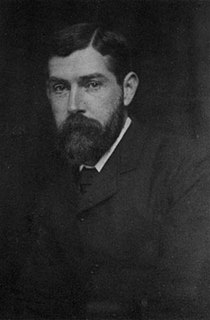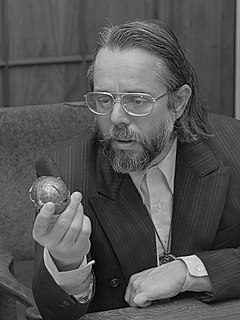A Quote by F. H. Bradley
I will begin with the self-styled "Christian" party, who profess to base their morality on the New Testament. But whether it is really more Christian to follow or to ignore the teachings of the Gospels I shall not discuss.
Related Quotes
That the religious right completely took over the word Christian is a given. At one time, phrases such as Christian charity and Christian tolerance were used to denote kindness and compassion. To perform a "Christian" act meant an act of giving, of acceptance, of toleration. Now, Christian is invariably linked to right-wing conservative political thought -- Christian nation, Christian morality, Christian values, Christian family.
Although I'm not Christian, I was raised Christian. I'm an atheist, with a slight Buddhist leaning. I've got a very strong sense of morality - it's just a different morality than the loud voices of the Christian morality.... I can't tell you how many films I've turned down because there was an absence of morality. And I don't mean that from any sort of Judeo-Christian-Muslim point of view. I'm not saying they're wrong and can't be made. But, fundamentally, I'm such a humanist that I can't bear to make films that make us feel humanity is more dark than it is light.
Would you say that any one sacred book is superior to all others in the world? ... I say the New Testament, after that, I should place the Koran, which in its moral teachings, is hardly more than a later edition of the New Testament. Then would follow according to my opinion the Old Testament, the Southern Buddhist Tripitaka, the Tao-te-king of Laotze, the Kings of Confucius, the Veda and the Avesta.
Contemporary Christian proclamation is faced with the question whether, when it demands faith from men and women, it expects them to acknowledge this mythical world picture from the past. If this is impossible, it has to face the question whether the New Testament proclamation has a truth that is independent of the mythical world picture, in which case it would be the task of theology to demythologize the Christian proclamation.
We now live in a 'post-Christian' America . The Judeo-Christian ethic no longer guides our social institutions. Christian ideals and values no longer dominate social thought and action. The Bible has ceased to be a common base of moral authority for judging whether something is right or wrong, good or bad, acceptable or unacceptable.
We can understand that the Fathers of the Church in the East wanted Apocalypse left out of the New Testament. But like Judas among the disciples, it was inevitable that it should be included. The Apocalypse is the feet of clay to the grand Christian image. And down crashes the image, on the weakness of these very feet. There is Jesus--but there is also John the Divine. There is Christian love--and there is Christian envy. The former would "save" the world--the latter will never be satisfied till it has destroyed the world. They are two sides of the same medal.
When one gives up the Christian faith, one pulls the right to Christian morality out from under one's feet. This morality is by no means self-evident. Christianity is a system, a whole view of things thought out together. By breaking one main concept out of it, the faith in God, one breaks the whole. It stands or falls with faith in God.






































